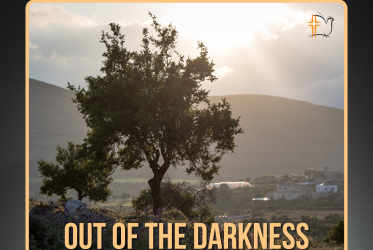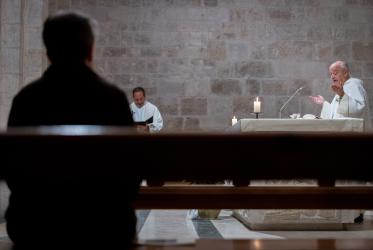Displaying 1 - 20 of 1323
WCC condemns killing of aid workers in Gaza
03 April 2024
Des mots de ténacité résonnent dans les décombres
25 March 2024
Compendium of Promising Practices of African Faith Community Interventions against Paediatric and Adolescent HIV
Executive Summary
23 March 2024
Words of steadfastness ring from the rubble
21 March 2024












